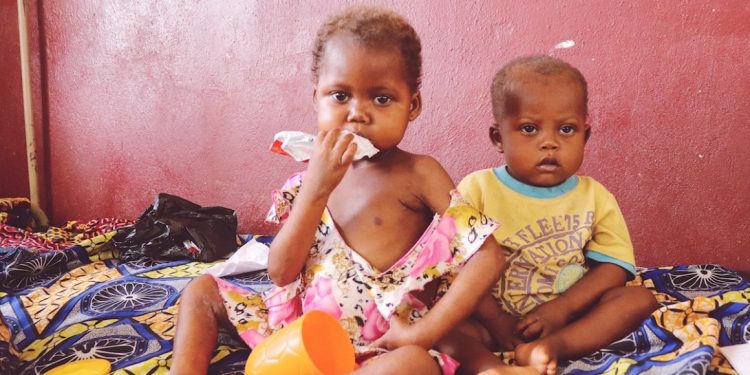Neha Saigal
In the recently tabled economic survey in Parliament, Finance Minister boasts of the Prime Minister’s dream of achieving a $5 trillion-dollar economy by 2025. This ambition of the Modi-led government to nudge the economy to grow by 8% each year is noble yet unrealistic. We are a nation that carries 23.8% of the global burden of malnutrition, with 195.9 million under-nourished people. Our stunting levels are one of the highest in the world and according to a World Bank report, stunting could affect a child’s cognitive ability resulting in loss of productivity as an adult. According to the latest surveys of NFHS, this would impact over 30% of our children, having consequences for our GDP numbers. Breaking the vicious cycle of malnutrition is a must for the much desired virtuous cycle of growth.
Closer to home, Angul district in Odisha boasts to be the industrial capital of the state and rightly so, with a per capita net district domestic product (Rs 64,014 in 2011-12) around 1.5 times that of the state. Yet, Angul’s high economic growth, often seen as a panacea for most development issues, has not translated into better human development outcomes in the district.
A drive through Angul’s villages will reveal that while there are pockets of prosperity, deprivation along with malnutrition is rampant, hardly an hour’s drive from the district headquarters. During a trip to Chendipada block in Angul, one will pass the impenetrable boundary wall of the Jindal Steel Plant – a sign of the economic prosperity. But a few kilometers ahead and there are houses of communities whose roof and walls possibly can’t withstand a storm. A drive further into Chendipada, reveals the tagged hamlets and the challenges around accessibility to basic health and Anganwadi services. For instance, a frail pregnant woman in her last trimester is unable to avail the state government’s Mamata scheme (conditional cash transfer). The reason being she was finding it impossible to change her address on the Aadhaar card, which is mandatory for the scheme. Mamata is a Government of Odisha initiative that grants pregnant and lactating women one-time cash benefit of Rs 5,000 to take care of themselves. The story of this woman is not singular and echoes in other parts of the district too.
Almost a third of Angul’s children, who are under five years of age, suffer from chronic under-nutrition (or stunting), almost a fifth is wasted and around 37 per cent is anemic. Women fare no better and almost 60 per cent of pregnant women are anemic and a fifth has Body Mass Index (BMI) below normal. There are significant inequities in distribution of economic growth with marked rural-urban differentials. Approximately 75 per cent of the district’s total population is covered under the National Food Security Act 2013, which covers only the vulnerable sections of the population. Angul also has a high proportion of Scheduled Caste (SC) (18.8%) and Scheduled Tribe (STs) (14.1%) population, two social groups with significantly higher levels of under-nutrition compared to other population groups. Among the STs, the Particularly Vulnerable Tribal Groups (PVTGs) such as Kharia, Paudibhuiya and Juang have much higher undernutrition levels and form a considerable proportion of the district’s population.
Angul has high incidence of diseases such as diarrhoea and dysentery (831 cases for every one lakh population), an immediate cause of under-nutrition. More than 90 per cent children in 6-23 month age group in Angul do not receive adequate diet as per the NFHS-4. More than one-fifth of women were married before 18 years of age and 10 per cent in the age-group 15-19 years are pregnant. The literacy level among women remains low, especially among ST women is 14% and SC women is 19%.
The high economic growth has failed to translate into improved nutrition for Angul, primarily due to little attention given to the issue in the district. This is food for thought not just for Angul district but for the state and national level that massive jumps in economic growth is not possible when the growth of our children is stunted.







































